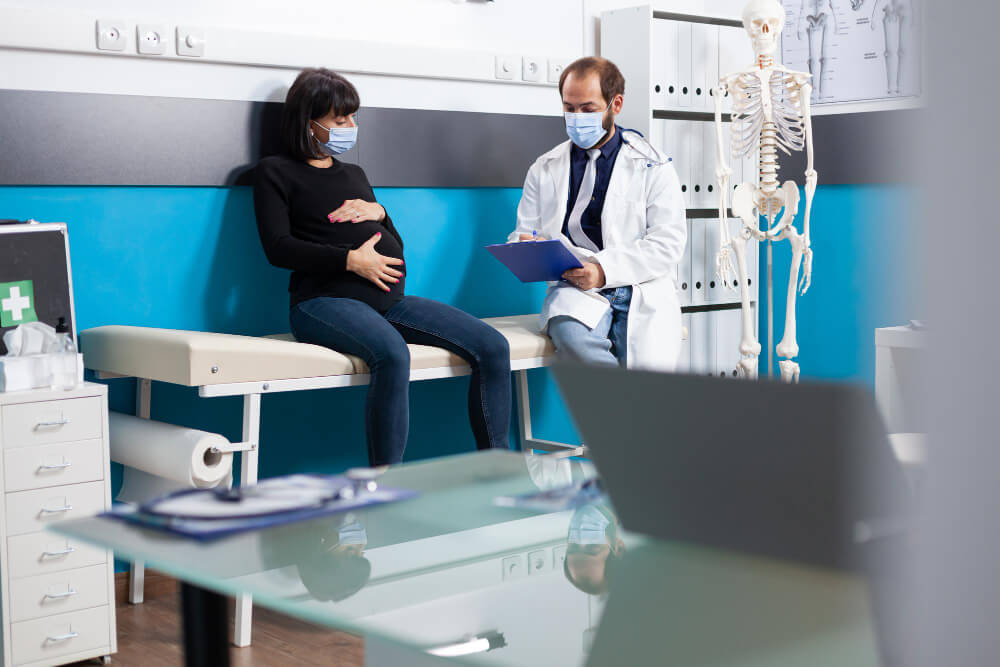Sleep Apnea and Pregnancy: A Delicate Balance
Pregnancy is a time of profound physiological changes, marked by increased demands on the body. The added burden of sleep apnea, a sleep disorder characterized by pauses in breathing during sleep, can pose significant challenges for pregnant women. This article delves into the intricate relationship between sleep apnea and pregnancy complications, emphasizing the importance of early diagnosis and management for maternal and fetal health.
The Impact of Sleep Apnea on Pregnancy
Sleep apnea can exacerbate various pregnancy complications, including:
Gestational Hypertension and Preeclampsia Sleep apnea has been linked to an increased risk of gestational hypertension and preeclampsia, serious pregnancy complications characterized by high blood pressure and protein in the urine. The chronic stress on the cardiovascular system caused by sleep apnea may contribute to these conditions.
Preterm Birth Women with sleep apnea are more likely to deliver their babies prematurely. Sleep disturbances and oxygen deprivation associated with sleep apnea can disrupt the delicate balance of hormones and other factors essential for a full-term pregnancy.
Low Birth Weight Babies born to mothers with sleep apnea are at a higher risk of having low birth weight. Inadequate oxygenation during sleep can affect fetal growth and development.
Other Potential Complications Sleep apnea during pregnancy has also been associated with an increased risk of cesarean delivery, gestational diabetes, and postpartum depression.
Recognizing the Signs of Sleep Apnea During Pregnancy
While some women may experience worsening of pre-existing sleep apnea during pregnancy, others may develop symptoms for the first time. It is crucial to be aware of the signs and symptoms of sleep apnea, including:
- Loud snoring
- Choking or gasping during sleep
- Excessive daytime sleepiness
- Morning headaches
- Difficulty concentrating
- Restless sleep
Diagnosing Sleep Apnea During Pregnancy

Diagnosing sleep apnea during pregnancy can be challenging due to the hormonal and physical changes experienced by pregnant women. However, it is essential to seek evaluation if you suspect you may have sleep apnea.
- Home Sleep Apnea Tests: In some cases, home sleep apnea tests may be used to monitor breathing patterns during sleep.
- In-Laboratory Sleep Studies: For more complex cases, a sleep study in a sleep laboratory may be necessary to accurately diagnose sleep apnea.
Managing Sleep Apnea During Pregnancy
Treatment for sleep apnea during pregnancy focuses on improving sleep quality and reducing the risk of complications for both mother and baby.
- Continuous Positive Airway Pressure (CPAP): CPAP therapy remains the gold standard for treating sleep apnea during pregnancy. Specially designed pregnancy masks can provide comfort and support.
- Positional Therapy: Sleeping on your side, particularly on your left side, can help improve airflow and reduce sleep apnea symptoms.
- Lifestyle Modifications: Maintaining a healthy weight, avoiding alcohol and sedatives, and creating a sleep-conducive environment can help manage sleep apnea.
The Role of Sleep Medicine Specialists
Sleep medicine specialists play a crucial role in diagnosing and managing sleep apnea during pregnancy. They can provide personalized treatment recommendations and monitor the health of both mother and baby.
By working closely with your obstetrician and sleep medicine specialist, you can effectively manage sleep apnea and reduce the risk of pregnancy complications.

